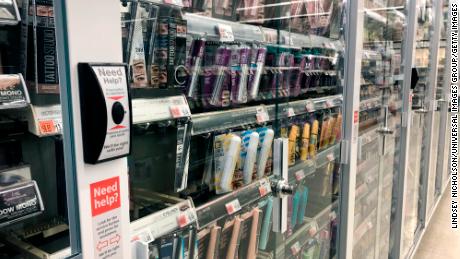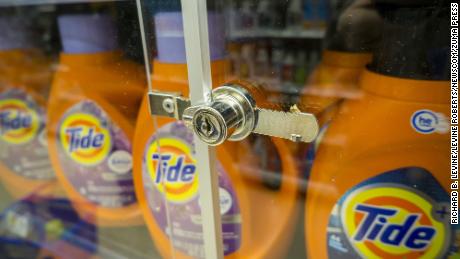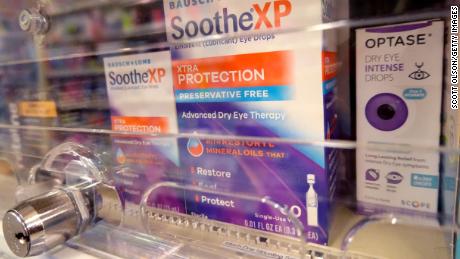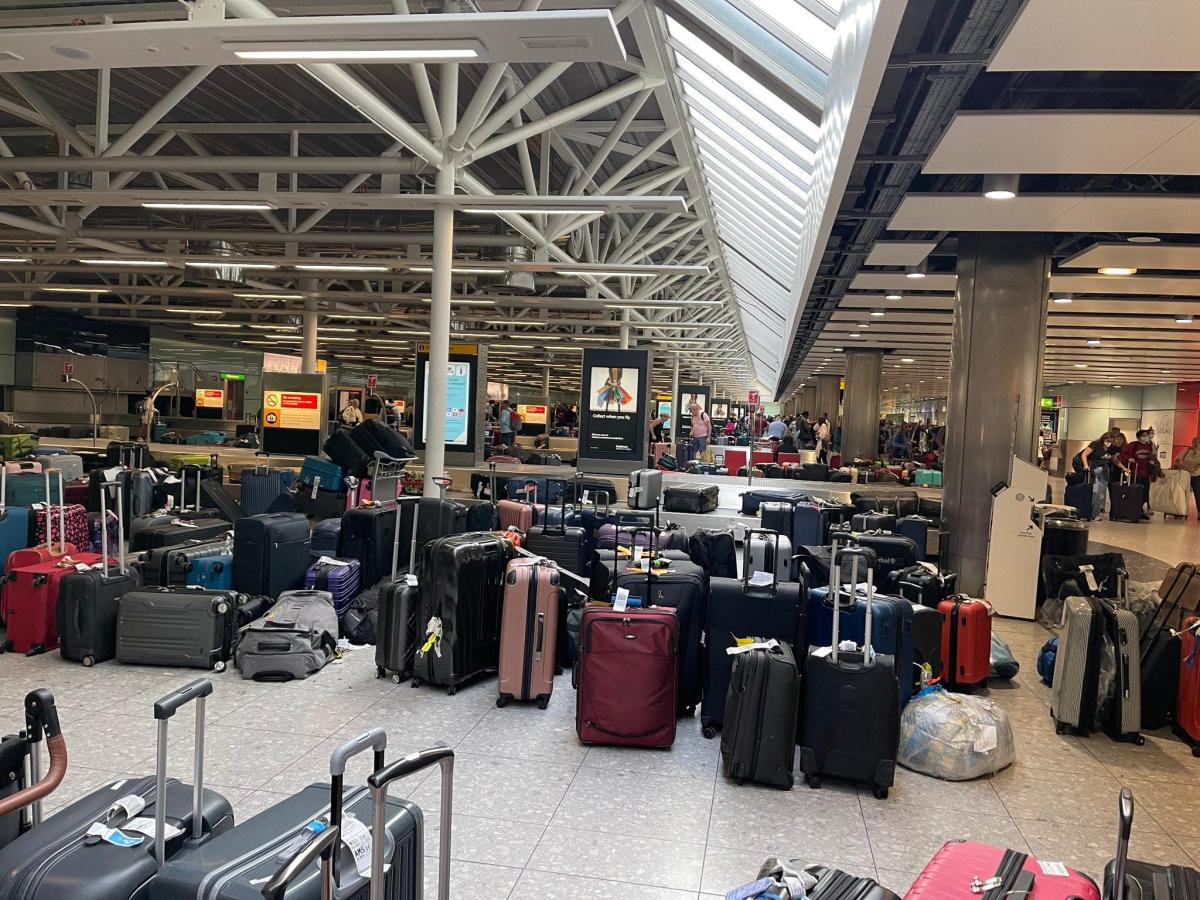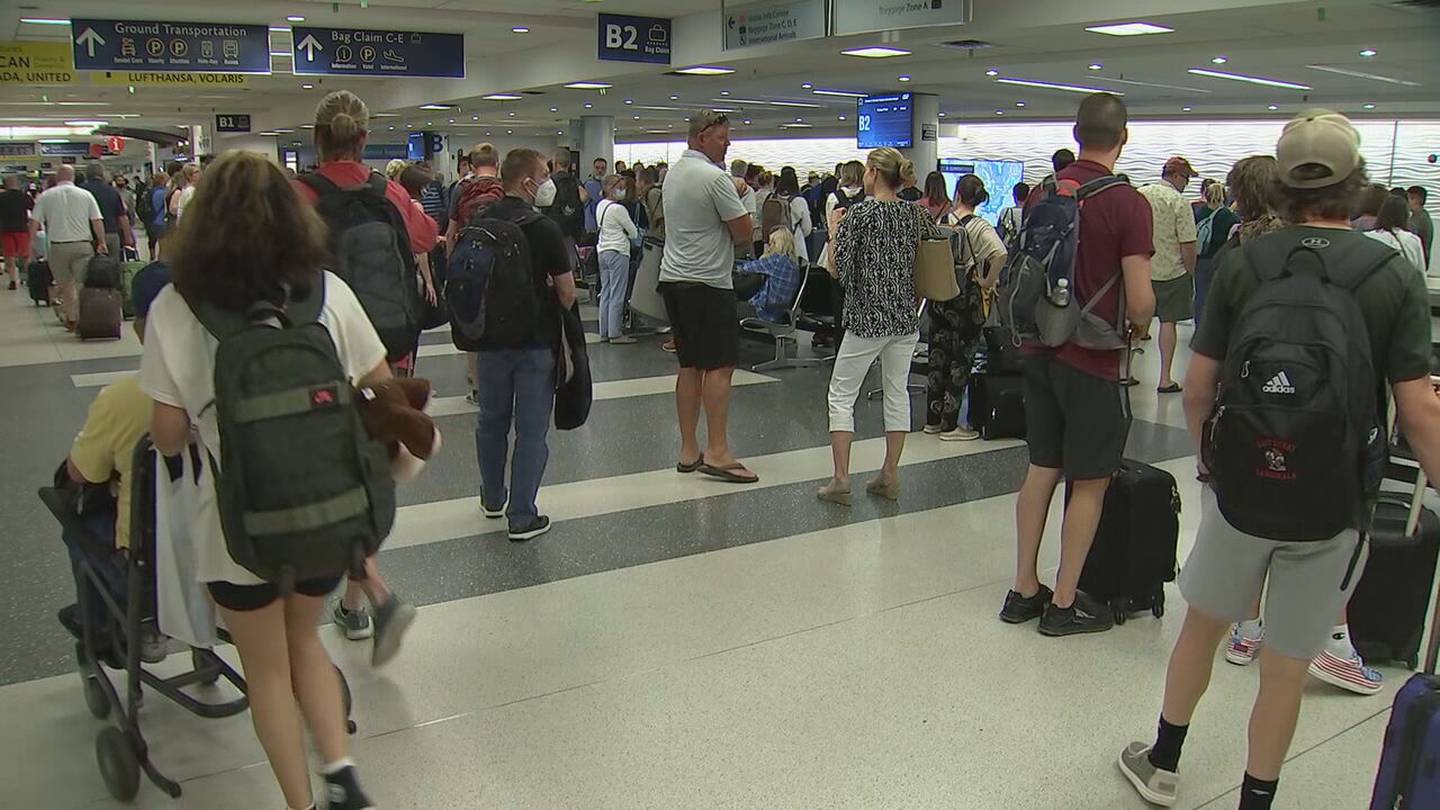Locking their cabinets is a final resort for shops, however it has by no means been so extensively practiced. It is also grow to be a rising irritation for customers and a supply of frustration for some workers who should stroll across the retailer with the keys shut at hand.
“It is extraordinarily disheartening for purchasers,” mentioned Paco Underhill, founder and CEO of behavioral analysis and consulting agency Envirosell. “It is also a brutal expertise for the service provider.”
The rationale shops resort to locking up these merchandise is easy: to forestall shoplifting. However these choices are rather more nuanced and burdensome for shops than you would possibly suppose. Companies should stroll a effective line between defending their stock and creating shops that prospects do not dread visiting.
Shoplifting in America
Till the start of the twentieth century, the confinement of merchandise was the norm. When prospects visited a retailer, clerks supplied them with the gadgets they wished from behind a counter.
This modified when early self-service shops like Piggly Wiggly within the early twentieth century found that they may promote extra merchandise and decrease prices by spreading merchandise throughout an open gross sales space.
Though having fewer staff within the retailer has boosted chain income in current a long time, it has left shops in some circumstances with out as many seen employees to discourage shoplifting, specialists say. in crime prevention.
Shoplifting has been round for hundreds of years, however it “got here of age in America in 1965,” writes creator Rachel Shteir in “The Steal: A Cultural Historical past of Shoplifting.” The FBI in 1965 reported that it had jumped 93% within the earlier 5 years and “was the quickest rising type of theft within the nation”.
Three years later, officers throughout the nation mentioned there had been an extra enhance in shoplifting amongst younger teenagers. The pattern turned a part of the counterculture, as evidenced by Abbie Hoffman in 1971’s “Steal This E book.”
In response, an anti-shoplifting business and “loss prevention” (LP) and “asset safety” (AP) groups have sprung up. Applied sciences have additionally emerged reminiscent of CCTV cameras, digital article surveillance and anti-theft tags.
“Scorching Merchandise”
Shops want to shield “the very important few merchandise” which might be most worthwhile for them to promote, mentioned Adrian Beck, who research retail losses on the College of Leicester. They usually’re prepared to simply accept the next theft on low-margin “many trivials,” he added.
Shoplifters goal smaller gadgets with greater worth tags, also known as “highlights”, that are normally what retailers lock up most frequently. A criminologist has created an apt acronym, CRAVED, to foretell the issues most in danger: “concealable, detachable, accessible, priceless, pleasurable, and disposable.”
Objects most frequently stolen from US shops embody cigarettes, well being and wonder merchandise, over-the-counter medicine, contraceptives, alcoholic drinks, tooth whitening strips and different merchandise.
Pharmacies have the next proportion of things which might be “flagships,” so that they have extra merchandise underneath lock and key than different retail codecs, Beck mentioned.
Organized crime in retail
These embody measures reminiscent of safety tags on gadgets that set off alarms when somebody walks out with out paying. However that is of much less worth than earlier than, as alarms are actually a part of the final cacophony of store noise and are sometimes ignored.
Shops additionally use methods reminiscent of cabinets that enable a buyer to choose up just one merchandise at a time. This helps stop customers from emptying a complete shelf of merchandise.
Locking down a product is the final step a retailer will take earlier than utterly eradicating it, and shops say they’re utilizing this measure extra incessantly that the flight continues to extend.
There is no such thing as a nationwide database on shoplifting, which is commonly underreported, and shops and prosecutors hardly ever press prices.
Retailers say organized crime has solely made their theft issues worse. Felony gangs typically search to steal merchandise from shops that may simply and rapidly be resold on on-line marketplaces reminiscent of Amazon and thru different illicit marketplaces.
“As we speak extra merchandise are on lockdown as a result of the issue has gotten so dangerous,” mentioned Lisa LaBruno, senior government vp of retail operations on the Retail Business Leaders Affiliation. “Felony actors can steal giant volumes of merchandise and resell them anonymously.”
Amazon mentioned it doesn’t enable third-party sellers to listing stolen items and is working carefully with legislation enforcement, retailers and different companions to arrest dangerous actors.
“We routinely ask for invoices, buy orders or different proof of provide when now we have issues about how a vendor was capable of get hold of specific merchandise,” a spokesperson mentioned.
Irritated prospects and misplaced gross sales
As we speak’s patrons are extra impatient. Some will exit and purchase the product from Amazon as an alternative of hanging out for a employee.
“You are attempting to be as easy for the shopper whereas avoiding loss,” mentioned Mark Stinde, former vp of asset safety for Kroger and different main retailers. “You get a variety of pushback from the operations and merchandising groups for locking issues down.”
Shops are engaged on new methods to lock merchandise whereas lowering buyer frustration, reminiscent of a brand new sort of field that any worker can open with a smartphone. Different circumstances require customers to enter their telephone quantity to open or scan a QR code.
“Shoppers perceive why it’s important to enclose a fur coat or jewellery. However they are saying ‘why are we enclosing deodorant? “,” mentioned Jack Trlica, co-founder of commerce publication LP Journal.
Trlica expects corporations to develop new applied sciences that shield merchandise however don’t require reporting an worker to unlock a shelf.
“There’s going to be an evolution of safety merchandise,” he mentioned.
#Spice #Colgate #Daybreak #locked #pharmacies

